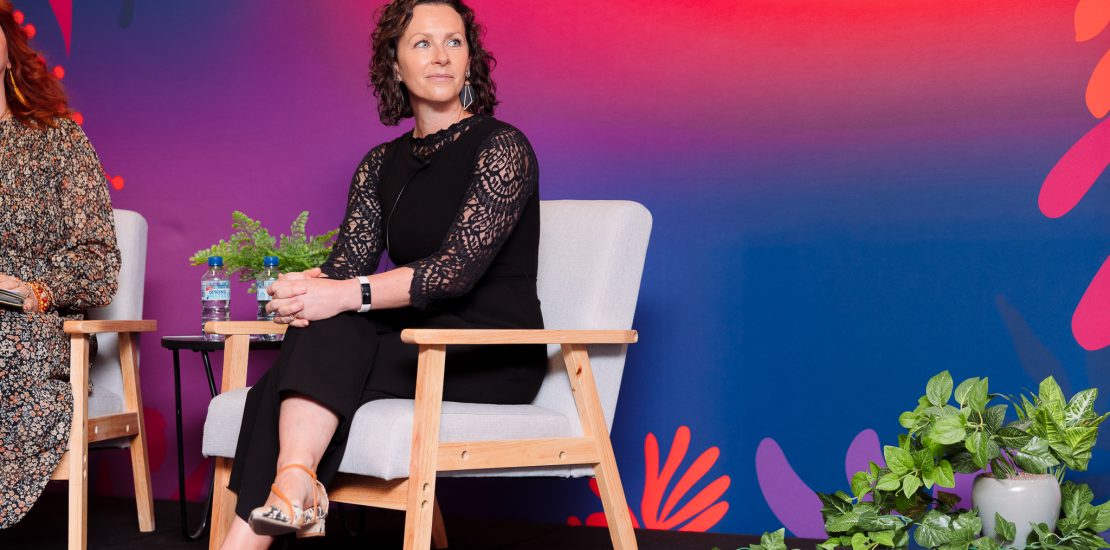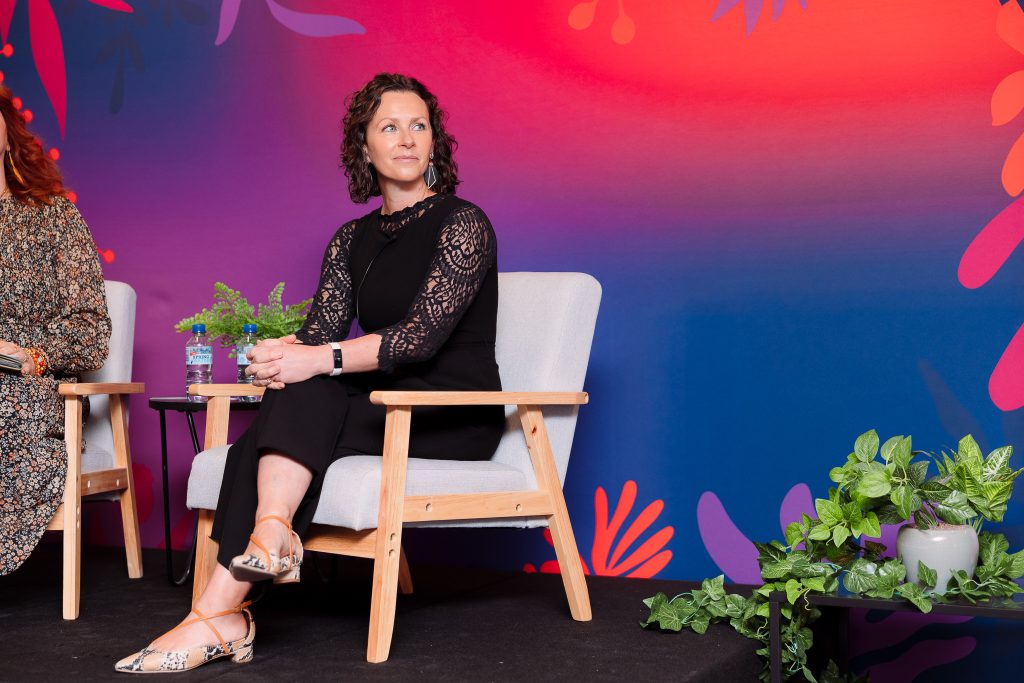- 24 October 2023
- Posted by: Ben Garrett
- Categories: Feature, General News, Women in Innovation

As the founder and director of Spinach Ventures, a people, performance and culture specialist, organisational design strategist and HR advisor Renee Beerworth’s skillset is a mouthful.
To this, she adds “mentor” for Canberra Innovation Network (CBRIN), and despite her busy schedule, she does it gladly.
“It probably comes back to one of the underlying principles for CBRIN – we can all be more successful together,” she says.
“That success is so much more powerful when it’s relational, not just transactional.”
This philosophy fuels the strengthening innovation ecosystem in the nation’s capital that Ms Beerworth says has “taken on a life of its own”.
“People want to be part of it because it’s supportive.”
In 2015, Ms Beerworth leveraged her decades-long HR career into founding her highly successful consulting organisation, but like so many founders, she also has a young family of her own.
That very combination made her a valuable addition to CBRIN’s diverse collective of mentors.
“My whole business is about people and culture. I’m very conscious of human dynamics, and I am all too aware of the stress and pressure of starting a business and how that can impact people,” she says.
“At the same time, as a female in business, I wear multiple hats, and I know plenty of us are out there. I believe if you have the opportunity to connect with someone juggling similar things with similar struggles, it’s a big help.
“Mentoring is a great way to let them know that while they might be running a business as sole owner, they don’t need to be alone.”
As a mentor, Ms Beerworth provides the Territory’s emerging innovators with a sounding board to bounce ideas off, guidance on troubleshooting, a supportive shoulder when needed and food for thought to encourage reflection and investigation into the various pitfalls and considerations of business.
But every mentor-mentee relationship is different.
“I personally feel energised by conversation and often need to sound my ideas out loud to problem solve, so I find that being able to have conversations is my go-to format for mentoring,” she says.
“I know other mentors take a more structured approach than that, and it has worked very well for them and their mentees.
“CBRIN are amazing at connecting people who can really help each other. They can quickly identify the challenges and opportunities in a start-up whether or not a business has articulated that, and they have the insight to match them to a suitable mentor.”
But it’s not a one-way street. Ms Beerworth says there are multiple benefits for a mentor to become part of the program.
One is that it’s another avenue to gather data that has proven valuable in her own business.
“My business provides advisory services to small businesses so understanding, at different points in time, the things that people are finding hard and stressful and how my business could support them is invaluable,” she says.
“But I think having your finger on the pulse that way is useful regardless of the industry you’re in.”
Ms Beerworth says some of the most effective mentor-mentee relationships have arisen out of connections with people in completely different industries.
In those cases, both parties can benefit from a “two-way mentorship”.
“At the beginning of a business, you have to be all things, but it doesn’t mean you’re the best at everything. Technology and marketing are not my strengths,” she says.
“Some of the small business owners I have mentored have gained valuable insights into my areas of expertise, the leadership journey and experiences of growing a team and business, but they’ve also given me support and advice in areas they shine in.
“It’s also useful to get different perspectives from people not in your industry.”
Of course, as any founder would know, networking is rarely a bad thing. But Ms Beerworth says the greatest reward is seeing hard-won knowledge being put to good use.
“You see them in their start-up phase and you so want them to succeed. It’s really touch and go in that phase. They have to gain momentum because cash and resources only last so long,” she says.
“It’s genuinely exciting to witness them gain that momentum and become a thriving business.”
For more information on joining the Mentor Network, visit the CBRIN Mentor and Investor Network.
Article was written by Dione David for Riotact.

